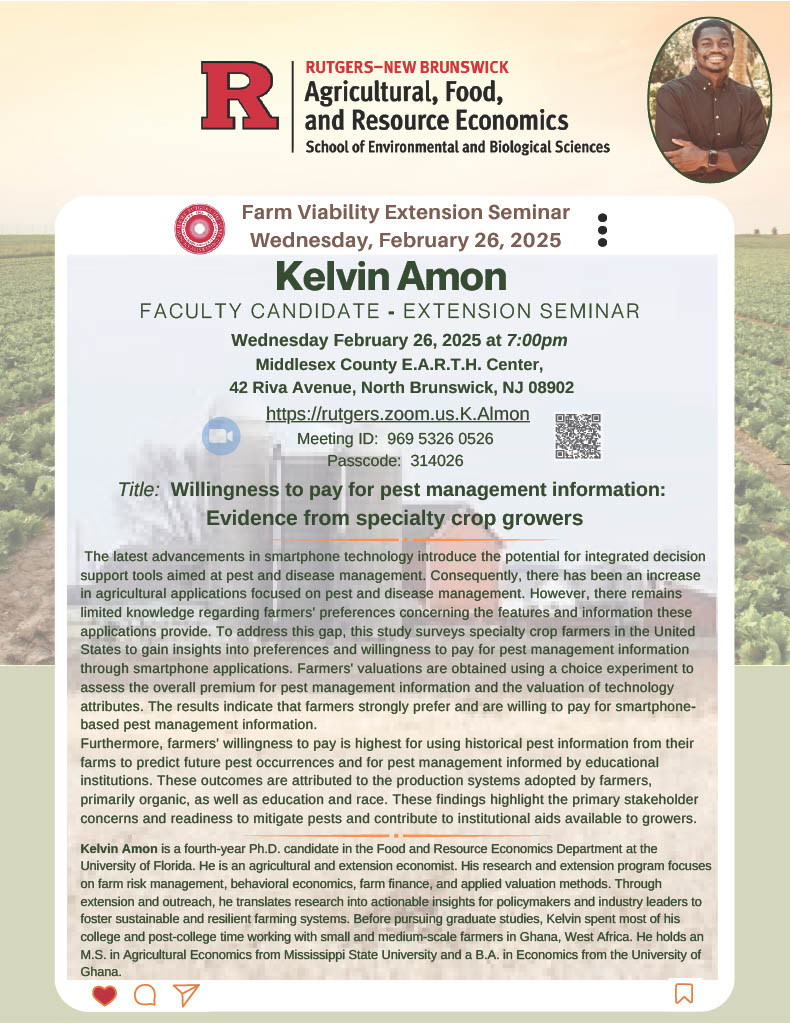Rutgers Cooperative Extension, in partnership with the Rutgers New Jersey Medical School, will host a Stop the Bleed training on Tuesday, April 8, 2025. The training will be held from 10:00 am – 12:00 pm at the Rutgers EcoComplex located at 1200 Florence Columbus Rd, Fieldsboro, NJ 08505.
Don’t miss this opportunity to learn the life-saving skills of pressure application, wound packing, and use of tourniquets. Attendees of this free training will also receive a complementary bleeding control kit.
Space is limited and pre-registration is required. Please complete our pre-registration form by Monday, April 1.
Questions? Email Kate Brown, RCE-Somerset County Ag Agent, at kbrown@njaes.rutgers.edu or call 908-526-6293.


 All New Jersey farmers are invited to attend this Farmer Resource Fair which will feature an array of agricultural service providers. In-between a light breakfast and a hearty lunch, there will be engaging presentations and opportunities to visit with service providers at their table displays. The program schedule, as well as a preliminary list of service providers who’ve confirmed their attendance, is included below.
All New Jersey farmers are invited to attend this Farmer Resource Fair which will feature an array of agricultural service providers. In-between a light breakfast and a hearty lunch, there will be engaging presentations and opportunities to visit with service providers at their table displays. The program schedule, as well as a preliminary list of service providers who’ve confirmed their attendance, is included below.
